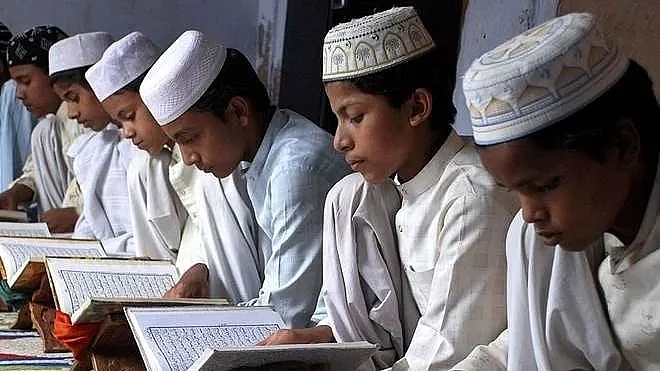An appeal was filed in the Supreme Court on Tuesday, 31 May, against an order by the Gauhati High Court, which upheld the Assam Repealing Act, 2020, according to which all government-funded madrasas were to be converted into regular schools in Assam.
On 4 February, the Gauhati High Court had dismissed a plea which challenged the validity of the Act, saying that changes brought about by the government were applicable to provincialised (government-funded) madrasas alone, and not private or community madrasas.
The plea against the Act, filed by Md Imad Uddin Barbhuiya, stated, "The appeal was filed through advocate Adeel Ahmed stated that High Court had erroneously observed that the 'Petitioner Madrasas being government schools, and wholly maintained by the State through provincialisation are hit by Article 28(1) of the Constitution of India and as such, cannot be permitted to impart religious instruction'," news agency ANI reported.
The Act had led to the repeal of two laws, namely the Assam Madrassa Education Provincialisation Act, 1995, and the Assam Madrassa Education (Provincialisation of Services of Employees and Reorganisation of Madrassa Educational Institutions) Act, 2018.
Plea Alleges Encroachment on Petitioner's Rights
The plea stated that the land and building of the madrasas were taken care of by the petitioners, and all expenditure on electricity and furniture was borne by them as well.
"The repealing Act of 2020 takes away property coupled with statutory recognition of Madrasa education and the impugned order dated 12 February 2021, issued by the Governor disbands the 'Assam State Madrasa Board' created in 1954," the plea said.
It further added that this "amounts to an arbitrary exercise of both legislative and executive powers and amounts to a denial of the petitioner madrasas' ability to continue as madrasas providing religious instruction coupled with religious education."
The appeal also said that such an "encroachment" into the proprietary rights of the petitioner without payment of adequate compensation was a "direct infraction" of Article 30(1A) of the Constitution.
(With inputs from ANI.)
